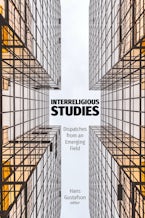In an increasingly connected world, the question of how different religious traditions relate to one another is more urgent than ever. The study of interreligious encounters and relations, by no means a new endeavor, has recently emerged as a formal multi- and interdisciplinary academic field that seeks not only to understand how worldviews and ways of life interact and intersect, but also to suggest avenues of constructive dialogue.
Interreligious Studies represents a milestone achievement, bringing together thirty-six scholars from four continents to produce "dispatches" on the current state of this burgeoning field. This volume probes the context, parameters, and contours of interreligious studies (IRS), including its relation to other disciplines, its promise as a field of research in secular and nonsecular contexts, its particular terminology and methodology, its civic agenda, and the various scholarly profiles of those who pursue it. Other topics taken up include historical examples of interfaith dialogue, theological and philosophical considerations of truth-seeking in interreligious encounter, and contemporary agendas such as the decolonization of the study of religion and the obligation to respond to antisemitism, Islamophobia, and xenoglossophobia.
Whatever possibilities IRS might hold, there first must be a working definition of the field and its praxis. Interreligious Studies points in this direction as it highlights the practical knowledge generated by IRS: how to cultivate empathy, make peace and build nations, promote scholarly activism, and foster meaningful interreligious relations. Scholars and students who are serious about engaging the many dynamic conversations blossoming within this nascent field will be well served by the contributions of this volume.

